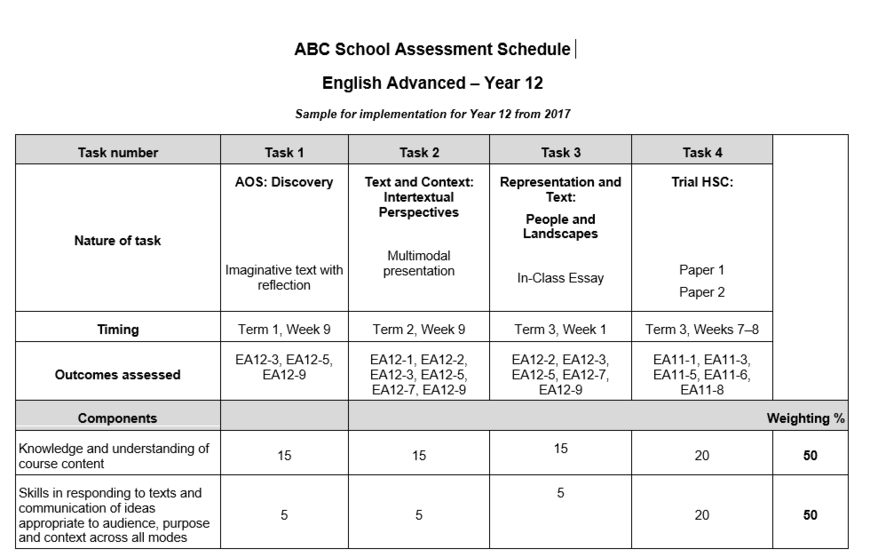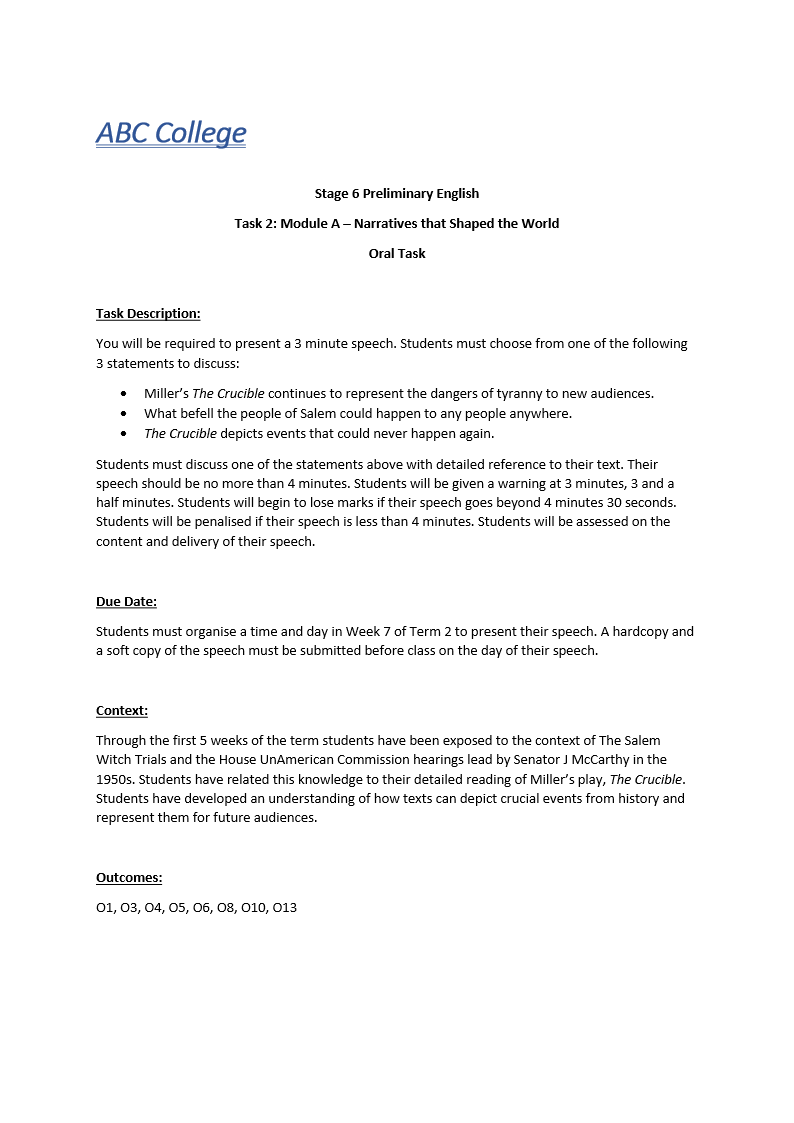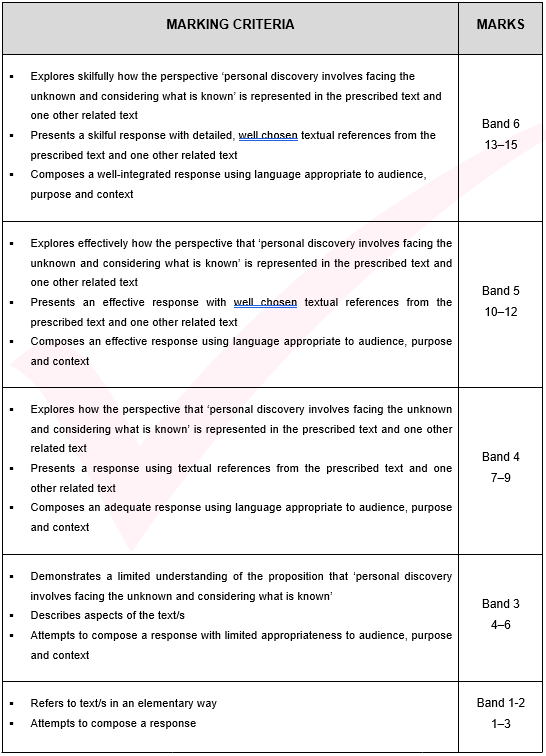Welcome to Matrix Education
To ensure we are showing you the most relevant content, please select your location below.
Select a year to see courses
Learn online or on-campus during the term or school holidays
Learn online or on-campus during the term or school holidays
Learn online or on-campus during the term or school holidays
Learn online or on-campus during the term or school holidays
Learn online or on-campus during the term or school holidays
Learn online or on-campus during the term or school holidays
Learn online or on-campus during the term or school holidays
Get HSC Trial exam ready in just a week
Get HSC exam ready in just a week
Select a year to see available courses
Science guides to help you get ahead
Science guides to help you get ahead

Guide Chapters
There’s more to succeeding in English than writing essays. Getting a Band 6 in English, or any subject for that matter isn’t going to happen unless you understand the tasks you’ve been set. Understanding English notifications for the tasks you are set will give you the best chance at getting that Band 6.
Assessment notifications actually tell exactly how to score Band 6 for those assessments!
You might have difficulty with assessments because you’re not really sure what you need to do. This is a common problem. Often, students are given a notification, but they don’t really know what it means and they’re often too embarrassed to ask for guidance in pulling it apart. It certainly doesn’t help that the syllabus language used can seem impenetrable.
Of course you will struggle if you don’t understand the task and marking criteria for the assessment you’ve been given.
But Assessment Notifications contain detailed instructions about what you need to do for the assessment. In addition, they also contain a guide to scoring a Band 6, too! That’s the marking criteria. You need to be able to understand what these documents are telling you and use that in the production of your responses.
In this Part of our Beginner’s Guide to Acing HSC English we’ll show you what to look for in notifications and give you an overview of the sorts of things you’ll be asked to do!
At the start of each year in Stage 6, you’ll be given an Assesment Schedule. And for every task you are given in Year 11 and Year 12 you’ll be given an Assessment Notification. These will give you precise instructions about your assessment tasks and the criteria you need to follow to ensure success.
It is crucial that you understand how to respond to the various assessment notifications you’ll receive and the different types of responses they will demand of you. This can be tricky, as the notifications often use syllabus language which can be confusing. This may sound daunting. But it shouldn’t be.
Schools are required to give students an assessment schedule at the start of the year. In the lead to up to a scheduled assessment, the various school departments must issue an assessment notification two weeks prior to the assessment. These documents are very important as they tell students what they need to study and when they need to study for it.
The notification lists what the type of task is; when the task will be due or sat; the outcomes that will be assessed; the question or area of focus for the question; and the marking criteria.
Remember, the important points about assessment tasks for Year 11 students are:
Current Year 12 students can expect to face five or six internal assessment tasks. This will change to four from 2019.
Below is a sample Notification Schedule.

Below is a sample Assessment Notification and also a sample Marking Criteria:


You will be asked to undertake a variety of different tasks throughout Year 11 and 12. These different tasks will assess different skills and your ability to respond in a wide variety of ways.
You will be assessed on a variety of modes. This means that some tasks will be written, others oral, and one multi-modal or visual. The modes are broken down into two categories – engaging and producing. This means that you will need to engage with texts in a variety of modes. You will also need to produce your own texts in a variety of modes. Below is a table showing the categories:
| Table: The Modes of Communication | |
| Engaging | Producing |
| Listening | Writing |
| Viewing | Representing |
| Reading | Speaking |
Don’t worry. This isn’t as confusing as it looks. Let’s quickly define the modes:
You will have already done all of these by the time you reach Year 11. You may just not have been aware of how NESA refers to them for assessment purposes.
Now you know what’s coming, let’s look at the various non-fiction responses you may be asked to produce (we will address creative writing in detail separately in Part 8 of this Guide: How to Write Creatives). Broadly speaking they fall into four categories – speaking, writing, creating, and listening.
Essays are written responses. They follow the conventions we have discussed above. You will usually sit these as an exam, but sometimes you might be asked to submit a longer essay that you complete at home. This is often the case for English Extension 1. We will look at these in detail in Part 6 of this Guide: How to Write an Essay.
Speeches are one of the two types of oral tasks you may have to present. You will have to do one or the other. Conventionally, a speech will be between 3 and 5 minutes long. You will be expected to maintain eye contact with the audience, speak clearly and at an adequate pace.
When you perform a speech you should aim for about 130 words per minute. This means that you will not cover as much content. Rather than presenting a lot of quotes and glossing over them, you should only present a couple of quotes and discuss them in detail.
Sometimes teachers will set speeches as an oral task. This may be a mock interview or a group presentation. In both instances, the basic principles of writing and presenting a speech apply. We will address speechwriting at length in Part 10 of this Guide: Multimodal presentations.
Viva Voce discussions are one of the two types of oral tasks you may have to present. You will have to do one or the other. A Viva Voce is an oral exam. It is essentially a question-and-answer discussion with an examiner, in most cases, this is your teacher.
In a Viva Voce, you will be given a list of questions to prepare responses for. Your teacher will ask you a group of questions from that list and you must answer them. It is important that you prepare thoroughly as they will usually ask follow-up questions to clarify your knowledge. You also want to sound like an expert, rather than somebody reading scripted remarks. So don’t try and memorise a script as you will lose marks. Part 10 of this Guide will also give you useful advice on approaching these tasks.
Rather than a single speech, group oral tasks are being more common in schools. These are usually either panel discussions or interviews.
Students are made to listen to an audio extract and make notes on it. They are then asked to answer a series of short answer questions on it, or they are asked to use it as a supplementary text for a longer written task.
Some assessments will include a visual task. For these, you will be asked to construct a visual representation in response to a question. This can be a collage or drawing, although most students produce a collage. You will then need to present a rationale.
A rationale is a document that explains what you have produced and why you have produced it. These two submissions, the visual image and rationale, should both engage with the text(s) and its relevance to the module. This task is one of the types of assessment tasks that is referred to as an imaginative recreation.
An imaginative recreation is a task where you are asked to recreate a moment from a text you have studied. Sometimes you will need to assume the position of a secondary character from the text and relate the events from their perspective. This sort of task will require you to use creative writing skills and couple them with your detailed knowledge of the text you are studying.
However, you may be asked to write using different genres, too. This means that you might be instructed to write a journalistic piece, a blog post, a letter,e a diary entry or another common form of writing. In these tasks, you will need to demonstrate your knowledge of the text, the form you have been asked to write in, and your creative techniques. You may be asked to support your creative reinterpretation with a critical rationale, too. This will be a reflective essay that explains your choices in the imaginative piece using evidence from your text. This type of task is likely to be assessed in both Year 11 and 12. It is possible that you may be asked a question like this for Module C in Paper 2 of the HSC from 2019.
If you want help producing that perfect imaginative recreation, read Part 9 of this Guide: How to Make and Imaginative Recreation or Creative Reimagining.
Multimodal assessments require responses in more than one mode. Remeber, NESA defines the modes of assessment as:
NESA state that a multimodal assessment must include at least one mode other than reading and writing. So that means at least one of the other categories from the list above.
What does this mean for you? In practice, this will mean that you will have to undertake one multimodal task in Year 11 and again in Year 12.
A multimodal task will most likely take the form of a powerpoint presentation and a rationale statement that describes why you have chosen to discuss/ represent the things you have. The slides you present will need to include visual images that represent your ideas. However, some schools are beginning to ask students to produce a series of blog posts or even a short film. It is likely that the nature of these tasks will evolve over the coming years to challenge students and embrace emerging technologies and applications.
This sort of task is a means of assessing contemporary forms of communication that are becoming more prevalent in the modern business world.
If you need help preparing a multimodal assessment, read Part 10 of this Guide: How to Prepare a Multimodal Presentation.
Reflection tasks require you to consider your process and experience of creating a piece of work. Reflection tasks are assessments that are combined with other tasks. For example, you may be asked to create a multimodal presentation and reflect on the process or you may be asked to write a creative and reflect on the composition in a speech. There are a variety of forms this task can take. In addition, because it is combined with another task you may need to do a couple throughout Year 11. Read this detailed blog post to learn more about reflection statements and read our step-by-step guide to producing a killer one.
Matrix students are instructed on how to approach and succeed in all of these assessment tasks in both our term and holiday courses.
© Matrix Education and www.matrix.edu.au, 2025. Unauthorised use and/or duplication of this material without express and written permission from this site’s author and/or owner is strictly prohibited. Excerpts and links may be used, provided that full and clear credit is given to Matrix Education and www.matrix.edu.au with appropriate and specific direction to the original content.